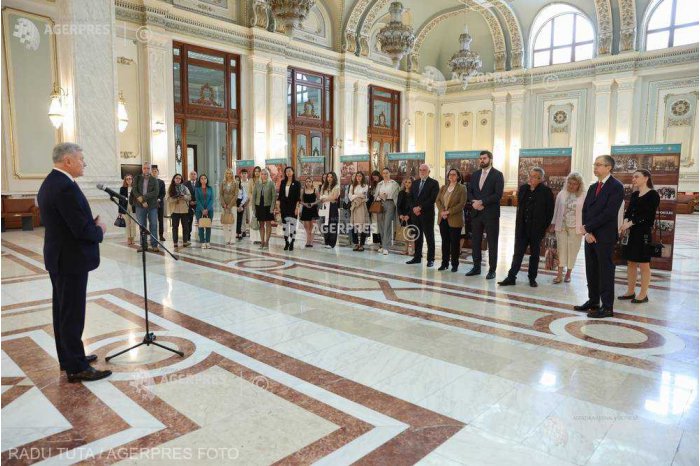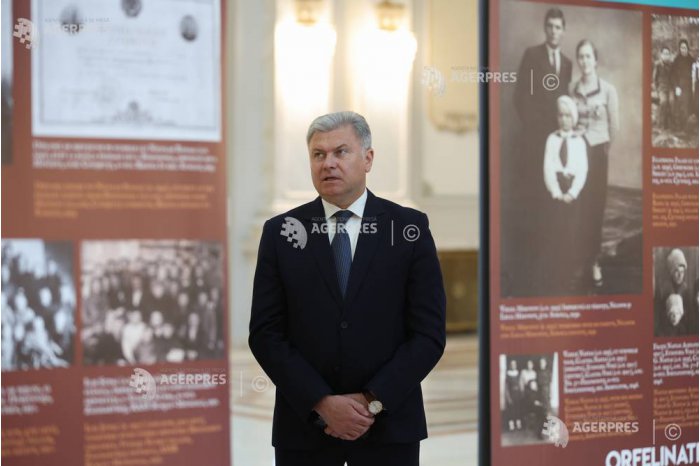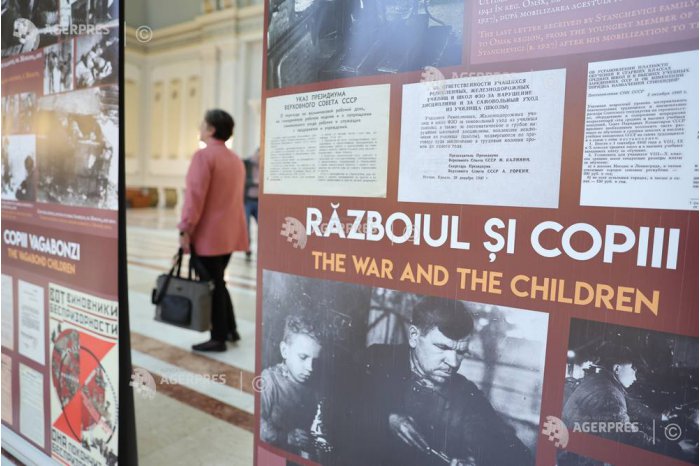Exhibition Childhood in Gulag on tragedy of Bessarabians deported to Siberia inaugurated at Romanian Senate's headquarters
16:31 | 20.05.2024 Category: Culture
Chisinau, 20 May /MOLDPRES/ - Tens of archive pictures and documents on the life of Bessarabian children reported in the years 1941, 1949 and 1951 and doomed to starvation, Russification, indoctrination and forcible separation from their own families, as a result of the repressive policies of the totalitarian Communist regime from the Moldovan Soviet Socialist Republic (RSSM), today were presented at an exhibition titled, Childhood in Gulag, inaugurated at the headquarters of the Romanian Senate, MOLDPRES reports, citing the AGERPRES Agency.
„Bessarabians were deported by the Soviet power, because they were Romanians and in order to destroy any relation with the Romanian traditions and culture,’’ Ambassador of Moldova to Romania Victor Chirila said.
"We should not forget these tragedies, through which Romanians from Bessarabia went. There were three waves of deportations with Romanians from Bessarabia, first of all, because they were Romanians, because they were members of the Romanian cultural, economic and political elite, because they had prosperous households. They were the target of these deportations, as well as they children. More than one third of the deportees were children, obliged to forcible work in the Siberian Taiga, in agriculture in Kazakhstan and at Soviet factories and plants. They were subjected to Russification in Soviet schools, in order to remove any relation of memory with the people from which they came and conveyed them our Romanian values, by reading them from the Bible in the Romanian language,’’ Victor Chirila said.
The diplomat drew attention that these deeds can be repeated, as in the last two years, during the Russian invasion in Ukraine, 20,000 children were deported (only 400 recovered) to the Far East and other cities of Russia, in order ‘’to destroy any trace of the Ukrainian identity,’’, similarly to the children deported from Bessarabia in 1941, 1949 and 1951.
"According to unofficial data, their number is larger, as the lists of NKVD were including families with two-three children, but in those times, the families were more numerous, with four-five-six or even seven children. We believe that the number of deportees was much larger. We must not forget, as what happened in these deportations was an attempt of the Soviet power to annul any memory of these people about their true identity, which was and is Romanian. Moreover, Russia, which is the de jure heir of the Soviet Union, has never condemned these atrocities and the lack of these condemnations creates new precedents and we see this in Ukraine. We must do our utmost, so that Russia, Putin’s Russia condemns, recognizes and takes responsibility for these atrocities, including through the providing of compensations to these families, just as other states did, which were guilty of the atrocities from the World War II,’’ Chirila added.
The exhibition, Childhood in Gulag, contains about 180 photo and documentary pictures, accompanied by memories and archive documents turned to account from collections of the National History Museum of Moldova, Museum of Edinet Region, Museum of History and Ethnography from Soroca, Pro Memoria Institute and family archives of the victims of the totalitarian Communist regime.
The exhibition was made with the support of The Development Cooperation and Democracy Promotion Programme of the Foreign Affairs Ministry of Lithuania. The event was organized by Moldova’s Embassy in Bucharest, in cooperation with Romania’s Senate, National History Museum of Moldova, Museum of the Victims of Deportations and Political Repressions.



